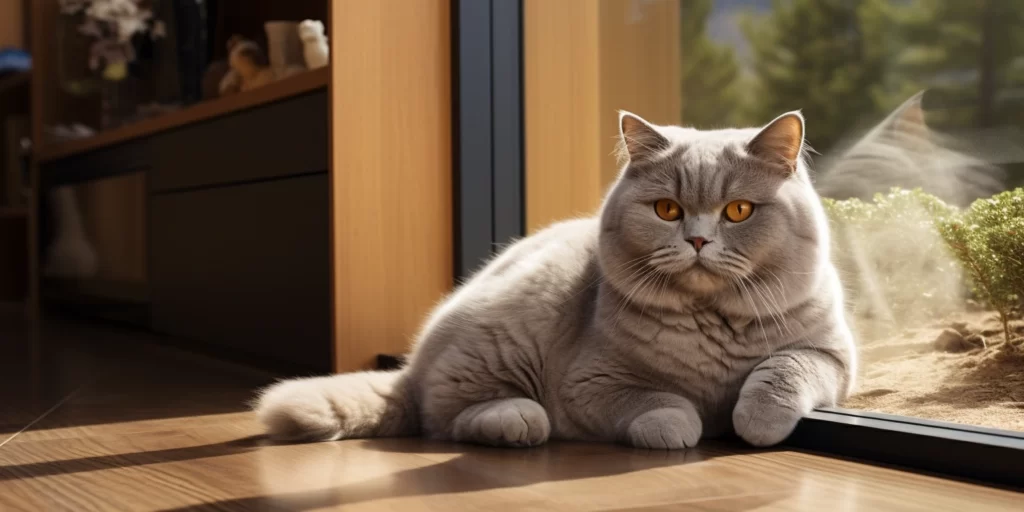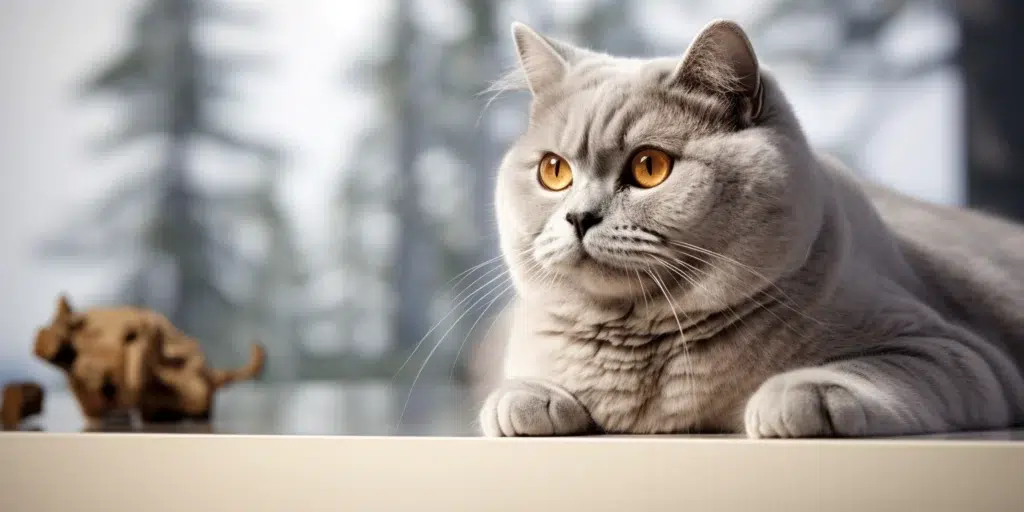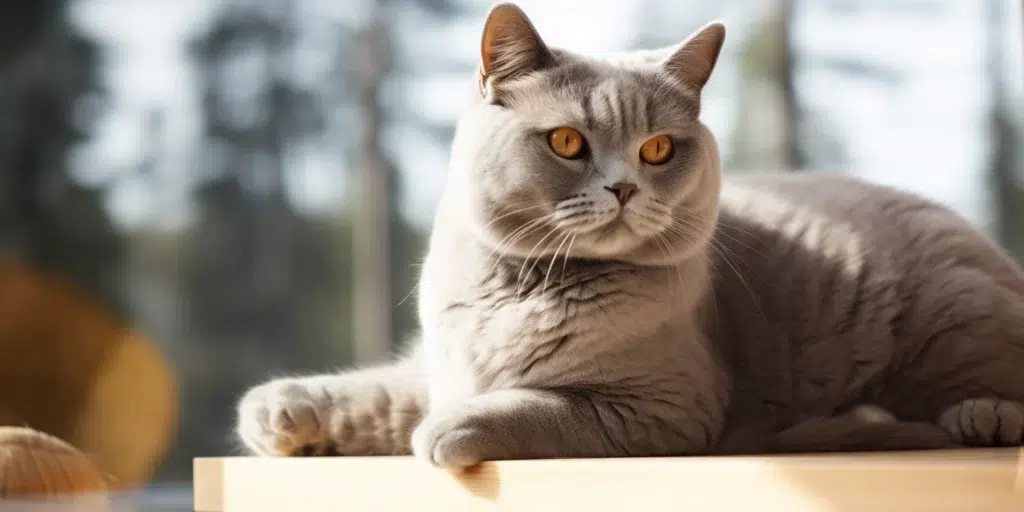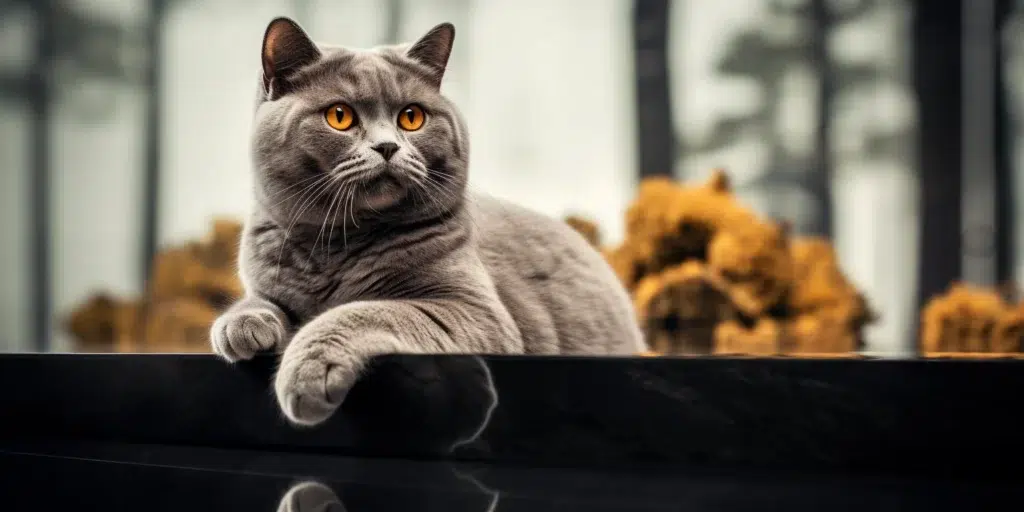Have you ever wondered whether those cute, chubby-faced British Shorthair cats are big talkers or the strong, silent type? Today, we’re exploring the world of British Shorthair vocal expressions. It turns out, when it comes to making noise, British Shorthairs usually prefer to let their lovely eyes do the talking, not their voices.
Yes, just like some of your friends might be chatty while others are more reserved, cat breeds have their own tendencies too. And for British Shorthairs, they usually keep their thoughts to themselves.
Now, not being too vocal doesn’t mean British Shorthairs don’t enjoy a good conversation with their human friends. They might not be the opera singers of the cat world, but they do have their unique ways of expressing themselves. It’s all about paying attention to their body language and the soft sounds they make.
Knowing whether British Shorthairs are big talkers is crucial for potential cat parents. It can influence not only your choice of a furry companion but also how you interact with them. Let’s climb into the comfy cat bed of knowledge and uncover the purrs and meows of British Shorthair cats.

Are British Shorthair Cats Vocal Cats?
British Shorthair cats tend to be on the quieter side when it comes to making noise. Unlike some breeds that will happily tell you about their day, British Shorthairs are more likely to show affection with a gentle head bump or a soft purr.
That’s not to say they don’t meow – they do, but their vocalizations are reserved for when they really need to communicate something important, like a reminder for their dinner time.
The gender of the cat doesn’t significantly affect their noise level; both male and female British Shorthairs are relatively quiet. However, individual personality can play a big role. Just like people, some cats are naturally more talkative than others. So while the breed tends to be quiet, you might come across a British Shorthair who has a bit more to say.
Activity and exercise are also connected to how vocal British Shorthair cats are. These cats are often content to lounge around, which keeps their noise level low.
However, they do get moments of playfulness and, during these times, they might be slightly more vocal, especially if they become excited with their toys or interactive play sessions with you.
Factors That Influence British Shorthair Cats Noise Levels
Their Age
Age is a big factor when it comes to how vocal British Shorthair cats can be. Kittens are naturally more vocal because they’re learning how to communicate and may call out more often for attention or when they’re in need of something.
As they grow into adulthood, they tend to mellow out, becoming the quiet, dignified cats the British Shorthair is known for.
During their golden years, senior British Shorthairs might become a bit more vocal again, although for different reasons. This could be due to confusion, discomfort, or simply a stronger desire for your attention and companionship.
Feeding British Shorthair Cats and Its Relation to Noise Levels
Mealtime can be a particularly vocal time for any cat, and British Shorthairs are no exception. They might not chat your ear off all day, but when it’s time to eat, they’ll likely make sure you know. The anticipation of food can lead to some meows and purrs.
How you respond to their mealtime calls can also affect their vocal habits. If you consistently react quickly to their meows with food, you might notice an increase in their chattiness around feeding times. It’s their way of saying, “Hey, it worked before!”

British Shorthair Cats Exercise Level affects Their Noise Levels
British Shorthair cats tend to be quite laid back, often preferring a good nap to a wild play session. This relaxed nature contributes to their overall quieter demeanor.
However, providing regular play and exercise can help keep them healthy and stimulate their minds.
During play, they might become slightly more vocal, especially if they’re particularly enjoying a game. Interactive toys and games can encourage this communication, offering a peek into their slightly more talkative side during these active moments.
Medical Conditions
Sometimes, if your British Shorthair becomes more vocal than usual, it might be a sign of a medical issue. Cats are experts at hiding discomfort, so any change in behavior, including increased vocalization, warrants attention.
Pain, discomfort, or feeling unwell can lead to your British Shorthair making more noise as a way of telling you something is wrong. Regular vet check-ups are crucial for catching and addressing any health issues early.
Hearing loss, especially in older British Shorthairs, can also affect their vocalization. They might not realize how loudly they’re meowing, leading to an increase in noise level.

British Shorthair Cats Noises and Their Meaning
Understanding the different noises your British Shorthair makes can deepen your bond and help you better care for them.
Each sound carries its own message, and being attuned to these can make you an expert in “cat language”.
Meow (The Most Common Noise)
The meow of a British Shorthair is often reserved and soft. If your cat meows, they might be greeting you, asking for something, or just seeking attention. Each cat develops a unique set of meows that their human can learn to interpret over time.
Purring (The Most Enjoyable Cat Noise)
Purring is common in cats and can mean contentment, relaxation, or even healing. British Shorthairs might not be the loudest purrers, but when they do, it’s a sure sign they’re happy and comfortable.
Hissing (Your Cat Feels In Danger)
If your British Shorthair is hissing, it’s probably feeling threatened or scared. This noise is a defensive mechanism, urging whatever is bothering them to back off.
Yowl (Not a Happy Meow)
A yowl can be a sign of distress, discomfort, or territorial disputes. If your British Shorthair is yowling frequently, it might be time to check for any potential problems or sources of stress.
Growls (Not as Scary as a Tiger)
A growl from a British Shorthair can signal irritation or discomfort. It’s their way of saying they’re not pleased with the current situation.

Some Cats are More Talkative Than Others
Even within the generally quiet British Shorthair breed, you’ll find a range of talkativeness. Personality plays a huge role, and while one British Shorthair might barely whisper, another could be relatively chatty, especially when it comes to expressing needs or desires.
How to Make British Shorthair Cats Less Vocal?
If your British Shorthair is more vocal than usual, consider their needs – are they hungry, in need of play, or possibly feeling unwell? Addressing these needs can help reduce their reason for vocalizing. Regular interaction, play, and check-ups can keep your British Shorthair content and quiet.
Conclusion
British Shorthair cats may not be the chatterboxes of the cat world, but they communicate in their own special ways. By understanding and responding to their noises and the factors affecting their vocalizations, you can ensure a happy, healthy relationship with your British Shorthair companion.
Remember, while they might not say much, when a British Shorthair does speak up, it’s always worth listening.